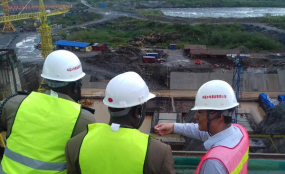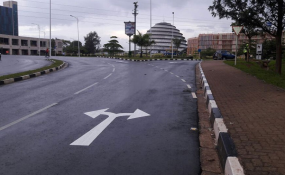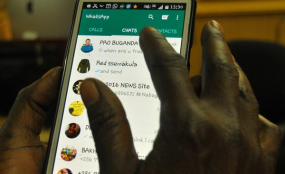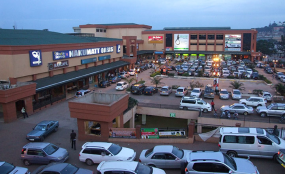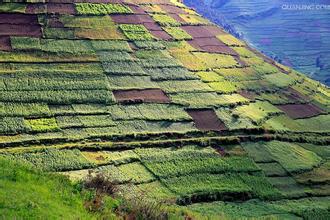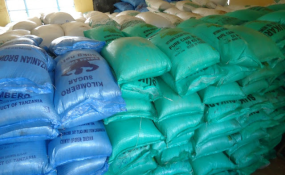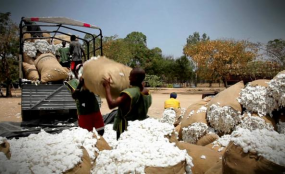By Josephine Namuloki
When President Museveni met a select group of MPs and other officials at State House Entebbe on October 21, he delivered one terse message: Please handle Chinese contractors with care.
Museveni’s visitors included MPs on the Natural Resources committee, which is probing sand mining around Lake Victoria, in which some Chinese firms are involved. But Museveni’s bigger concern appears to have been the Karuma and Isimba hydropower projects, which have been dogged by concerns about poor workmanship.
According to sources who attended the State House meeting, Museveni is worried that if Chinese firms are ‘harassed’, they could lose the funding that they bring to Uganda. Yet, the president said, the country badly needs that money to develop its infrastructure. Museveni complained that MPs and other institutions were particularly rough in handling the Chinese.
“We need a coordinated approach to avoid negative reports about [the Chinese contractors],” the president reportedly said.
We need to speak the same language when dealing with them. But if one group says this today and another group says something else tomorrow, we confuse them.”
According to another source, Museveni added: “When you scare any investor, definitely the funder of that investor will get scared. Now, what image and impression is being created out there?” the president said, according to a source.
Museveni’s meeting with MPs came on the coattails of two parliamentary investigations: one by the committee on Natural Resources and the other by the committee on Commissions, Statutory Authorities and State Enterprises (Cosase).
MPs on Cosase recently pushed Chinese contractors to refund Shs 26.3bn meant for compensation of people affected by road projects. MPs on the Natural Resources committee, meanwhile, directed Uganda Investment Authority to stop Chinese companies from mining sand in Lwera plains off the Kampala-Masaka highway.
The MPs argued that sand is not an exportable mineral which can be extracted by foreigners, but a locally-used natural resource which should be left to locals.
The president fears that if funders see any negative news about any investor, they are likely to withhold their money. So, he counseled, we “really need to treat our investors with care”.
But his directive could be seen to compromise the principle of separation of powers, under which parliament provides oversight into the work of the executive.
Among other officials, the Entebbe meeting was attended by Speaker Rebecca Kadaga, Attorney General William Byaruhanga, Energy Minister Irene Muloni, and Dr Badru Kiggundu, who heads a steering committee overseeing the construction of Karuma and Isimba dams.
Engineer Kiggundu’s committee and another comprising of young engineers presented their reports on the problems at the 183MW Isimba and the 600MW Karuma dam construction sites. They confirmed the presence of cracks; but it was not clear from our source what the cost of fixing the problem would be in terms of money and project time.
Karuma dam is being built by the Chinese firm Sinohydro, and Isimba by China International Water & Electric Corporation. But reports of shoddy work have forced MPs to push for a thorough inquiry, with parliament recently setting up a nine-man select probe committee
This appears to have alarmed the president. Attorney General William Byaruhanga recently wrote to the ministry of energy warning against any investigations into the two projects. But in Entebbe, Kadaga clarified that committees of parliament had oversight responsibility and were within their right to carry out investigations.
“On that basis, the attorney general withdrew verbally his opinion. He said in the interest of moving the country forward and saving money, he withdrew. So, he literally withdrew his opinion,” a source told us.
Asked about the meeting, Nwoya MP Simon Oyet said: “Everybody was able to express their views and I was happy for the first time to see the president talking tough about accounting officers who are not really performing their duties for reasons unknown.”

